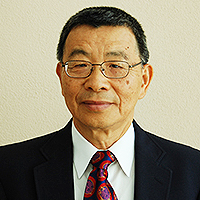The Predictive Value of Diaphragm Thickness Fraction on Postoperative Pulmonary Complications after Digestive Cancer Curative Surgery
Published on: 14th August, 2023
Background: Postoperative Pulmonary Complications (PPCs) escalate mortality, hospitalization, and costs. This study aimed to predict PPCs after curative digestive cancer surgery using thickness fraction (TFdi) determined by ultrasonography. Methods: A prospective study was conducted over a period of 9 months. Diaphragmatic ultrasound was performed pre-surgery and repeated postoperatively (within 24 hours of ICU admission, then day 3). Right and left hemidiaphragm thickness at end-expiration (TEE) and peak-inspiration (TPI) were measured using ultrasonography. The maximal diaphragm thickening fraction during inspiration (TFdi,max) was calculated: TFdi,max = (TPI–TEE)/TEE. Patients were classified into No-PPCs and PPCs groups. Results: 159 patients participated, 55 (34.6%) developed PPCs. ICU stay was longer in PPCs patients with more deaths. TFdi,max decreased postoperatively and remained lower in PPCs patients [44.83% ± 11.07 vs. 31.54% ± 8.45; p < 0.001]. The receiver operating characteristic curve yielded an area under the curve of 0.83 [95% IC: 0.754 – 0.887]. TFdi,max < 37% had 72.7% sensitivity (95% IC: 59.0% – 83.8%) and 80.8% specificity (95% IC: 71.8% – 87.8%), Positive and negative Likelihood Ratios were 3.7 (95% IC: 2.4 – 5.7) and 0.3 (95% IC:0.2 – 0.5), respectively. In multiple logistic regression, preoperative risk factors for PPCs included TFdi,max < 37% [OR: 7.10; 95% CI: 1.71 – 18.60; p < 0.001] and supramesocolic surgery [OR: 9.94; 95% CI: 3.62 – 27.29; p < 0.001]. Epidural administration was protective [OR: 0.21; 95% CI: 0.052 – 0.87; p = 0.031]. Conclusion: A low preoperative TFdi,max identifies high-risk PPCs patients after digestive cancer surgery, aiding targeted preventive strategies like inspiratory muscle preoperative training.




